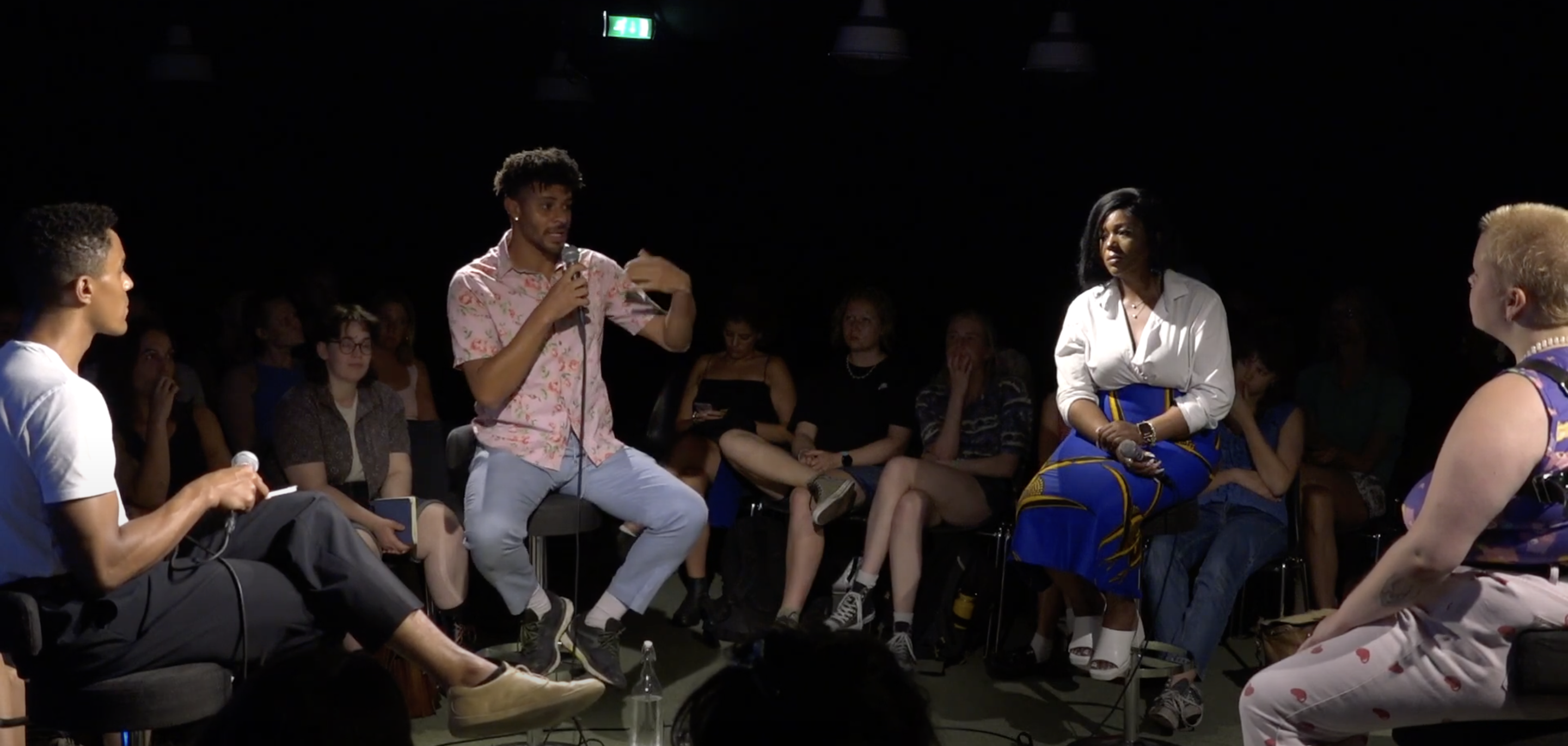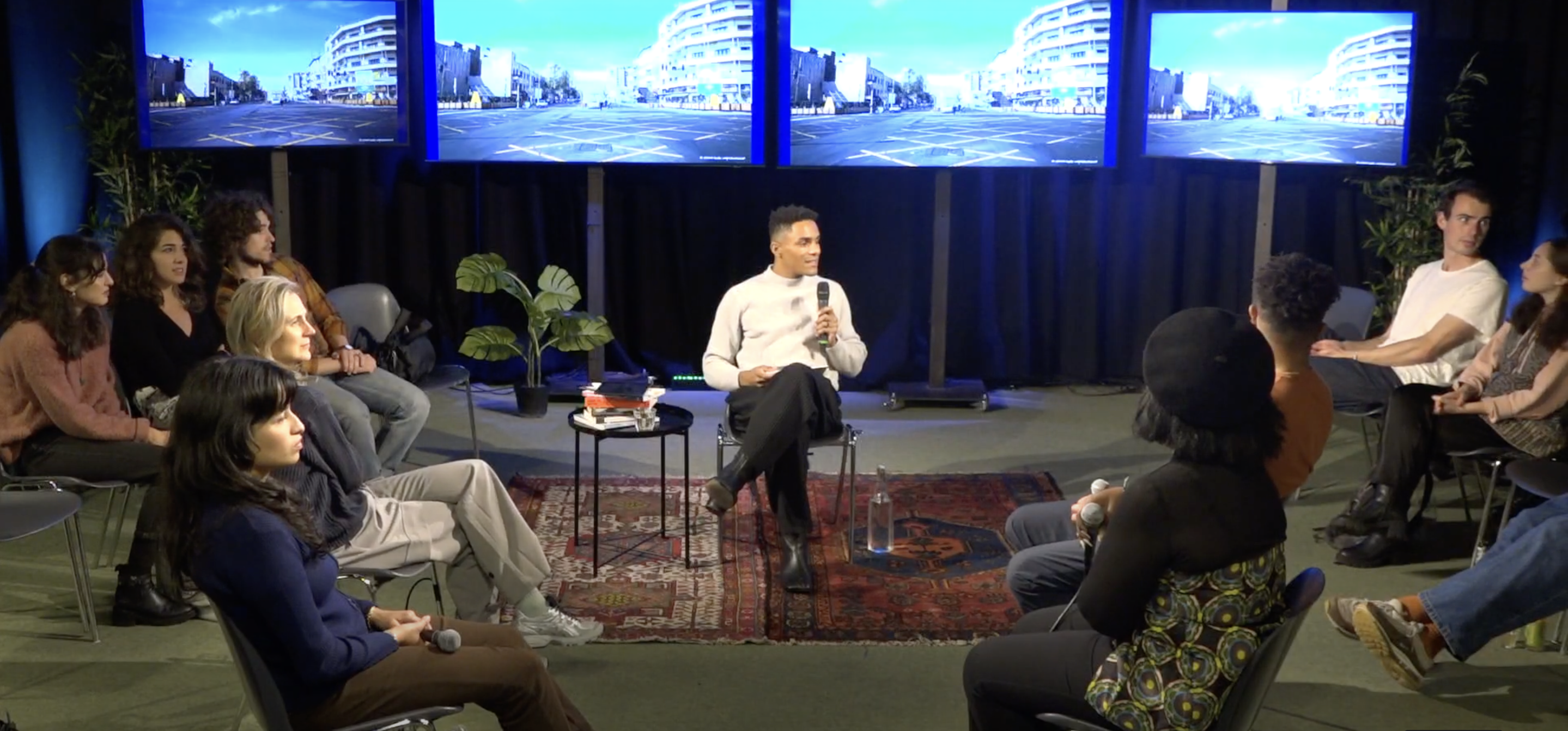The artificial separation helps us to make sense of the complex society but also excludes certain groups based on citizenship, race, gender, or types of being (nature). Where does the concept of the border originate from and who has the power to install and enforce them? Welcoming Joris Lechêne and Lucia Kula, the third Fellowship programme for the Designing Cities For All: RE-generation edition delved into the concept of made-up boundaries, borders and binaries, and their implications on the world.
Being black, queer, foreigner, and neuro-divergent, fellow Joris Lechêne has been working as a social media influencer and anti-racism, bias, and privilege trainer to speak up on the topics of systemic inequalities, discrimination and bias. Lucia Kula is an international lawyer and lecturer in Law and Gender at SOAS University of London. Drawing on her experience of being a refugee, her work focuses on international law, borders, forced displacement and gender-based violence in the Southern African region of Angola and the Democratic Republic of Congo, and on de-coloniality.
Exploring the artificial separation in everyday life, Joris and Lucia tackled three dualisms that influence our public spaces, systems, and (hi)stories in each episode: Trends vs. Traditions, Demands vs. Desires, and Borders vs. Bodies. We also challenged the power dynamics within the DCFA programmes by implementing new set-ups of the room and the conversation.
Episode #1: Trends vs. Traditions
How do you see your neighborhood changing and how does that affect your life?
Looking into gentrification, the first episode unpacked the tension between the ‘upgrade’ of a city through urban development and the conservation of tradition. The conversation tends to be about whose interests are prioritised more than the others although everyone, in the end, wants the city to be a better place. Collecting lived experiences from the room but also from Barcelona, Angola, and Amsterdam-Noord, it became visible that economic or cultural restrictions put forward by gentrification create borders within people’s bodies, hindering locals from accessing the services within their community. We learned that we can both participate in marginalisation as a victim and an oppressor. Inspiring speakers such as Isa Segalovich and Eli Verboket joined us in this conversation.

You can watch the programme here.
Episode #2: Demands vs. Desires
Do you ever take a shortcut that you’re officially not supposed to take and what was the reason?
In the second episode, Joris and Lucia, together with Bárbara Oliveira Soares and Ilke Gers, discussed the concept of desire paths – shortcuts in public spaces that people prefer to the paved and regulated routes, for instance in parks. Desire paths are a great example of how we view society. Either we think the design should serve people or people should follow a design that does not serve their needs. In this sense, desire paths are a result of the common shared goal, that people voted with their feet. Scaling up this idea, we explored what ‘desire neighbourhoods’ and ‘desire cities’ would look like. Do we want to codify the informal settlement by law? How does the settler colonial infrastructure prevail in the city? What this dialogue highlighted, is that our daily actions as a collective do matter.

You can watch the programme here.
Episode #3: Borders vs. Bodies
Who or what do you think the borders are protecting?
The final episode challenged a false dichotomy of fixed borders and mobile bodies. Even if you obtain a strong passport, your other identities can become a border, exemplified by racial profiling at border control. Borders from a physical disability follow wherever you go and steal your accessibility as well as your dignity. Questioning if inside and outside borders are different, we also reflected on the current situation in Palestine and Israel. The current notion of borders travel with and through our bodies and this results in either privilege or oppression. If we re-imagine the borders in a way that corresponds to autonomy and agency from the people there, what would the world be like?

You can watch the programme here .
After the new year, Designing Cities for All: RE-generation will continue and team up with an the one and only uneconomist Shinta Oosterwaal! This fellowship will further explore how to design an economy for all sanctuary life. Hope to see many of you in the next fellowship programme on Monday 29 January in 2024!














